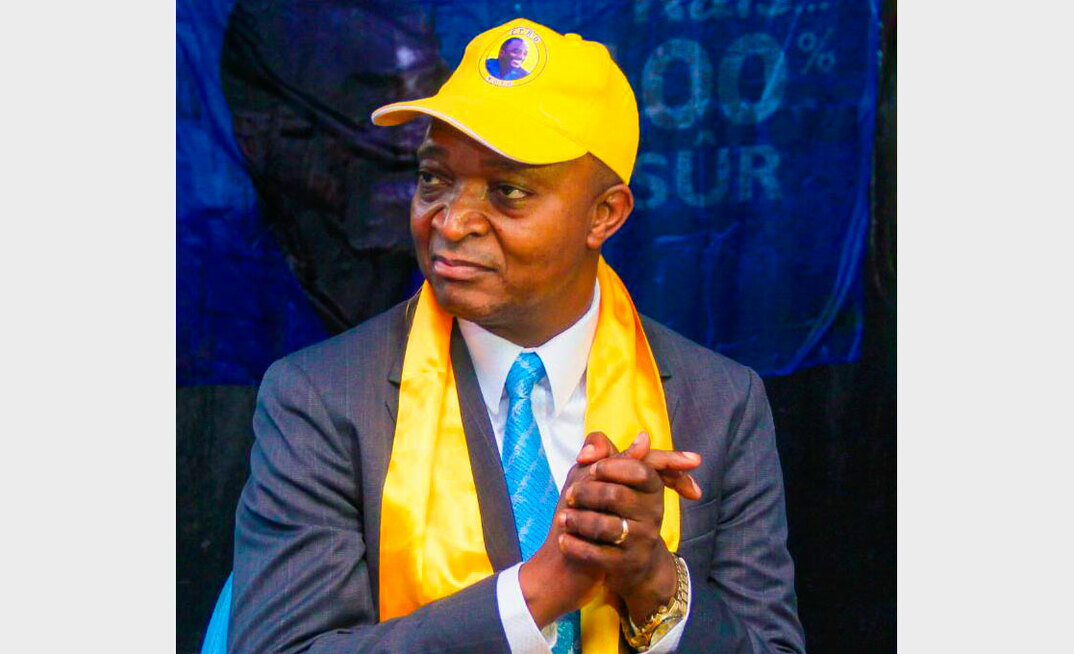The impending battle for control of DR Congo - and its mineral riches - threatens further pain for miners. The 23 December presidential, provincial and legislative elections are likely to have one of two outcomes. The first scenario, our base case, is a dubious electoral victory for Emmanuel Ramazani Shadary (anointed successor to the current president) and his incumbent electoral grouping, the FCC- without a coalition government. The second is an actively disputed, narrow victory resulting in the incorporation of Félix Tshisekedi and other opposition figures into a government of national unity led by Shadary. In either case, cobalt miners - as well as companies sourcing minerals from the country - face disruption.
The most immediate threat is a deterioration of the security situation that extends beyond the beleaguered eastern provinces. We expect an increase in violent demonstrations in major towns and cities, including in the mine-rich south east. Nonetheless, industrial mining operations in the four Katangese provinces are not likely to be exposed to election-related violence - unless the situation deteriorates severely. Though remote, the greatest risk to operations in Katanga is the temporary closure of the border with Zambia, impeding imports and exports - as we saw in August 2018.
Beyond this, miners are likely to face further regulatory change following recent, high profile amendments to the Mining Code. Shadary has promised to eke out more mining revenue by applying some of the more onerous Mining Code changes to their maximum extent. While the opposition coalitions also want to gain more revenue from mining, it is very unlikely to be pursued through the Mining Code as it stands, which Tshisekedi has called ‘anti-investment'.
Scenario 1: Shadary ‘wins' an unfair election, the opposition is left out of government
Shadary's probable accession, with Kabila pulling strings behind the scenes, should maintain an element of political and regulatory continuity usually welcomed by miners in riskier operating environments. However, Shadary has promised to triple the yearly Congolese budget by increasing mining revenues. This means exploiting the recent changes to the Mining Code (including the introduction of a 10% royalty on strategic minerals, government approval on licence exchanges and super profits taxes) to the maximum extent possible, including the possible renegotiation of contracts. In this scenario, the ability of mining companies to negotiate individual agreements with officials to buffer the effects of the Mining Code changes (e.g. via exemptions, etc.) is likely to be limited.
Shadary has already shown his hand in this regard. On 3 December, the Prime Minister and Mines Minister announced that cobalt, coltan and germanium would be subject to a 10% strategic minerals royalty, as permitted under the 2018 Mining Code. With projected cobalt output set to reach 125.6 kilo tonnes in 2019, according to our sister company Wood Mackenzie, the Congolese exchequer will earn handsomely from this. Mining revenue in the first nine months of 2018 has already jumped 147% year on year. It's a popular move for the ruling party three weeks before elections. For Shadary to achieve his planned increase in revenues, however, he will need to broaden the number of minerals subject to the strategic minerals royalty - potentially including gold or copper. As such, a Shadary victory is unlikely to change higher levels of resource nationalism in the country - and may even worsen it.
Scenario 2: Opposition leader Tshisekedi brought into government following an electoral petition.
The opposition has recently split into two distinct camps after a pact to field a single opposition candidate held for less than 24 hours. Félix Tshisekedi is running under Le cap pour le changement, and Martin Fayulu under the Lamuka coalition. We expect the government to manipulate the vote, as it did in 2011. The existence of a divided field, with a total of 21 presidential candidates, gives them ample opportunity to do so.
If the opposition challenges the results before the courts, as we expect, Shadary will likely invite a number of his former rivals into a transitional government. This is well-established practice in DR Congo, used to ‘fix' disputed results and limit the civil unrest it usually results in.
While less likely than outright victory on the part of Shadary and the FCC, a coalition government would be a preferable option for mine operators and mineral purchasers. Key industrial mining areas in the Katangese provinces are opposition heartlands. Bringing them into the ‘government tent' would certainly limit the effect of any resulting unrest.
Furthermore, Tshisekedi is the more probable of the two opposition figures to take up a position in a coalition government. He has spoken out against the more onerous terms of the Mining Code, despite also wanting to maximise mining revenue for the Congolese people.
Tshisekedi would likely revisit the code changes to be more favourable for miners, or temper the FCC moves to increase strategic mineral royalties. While the level of influence he can wield in a coalition government is debatable, Tshisekedi would be more likely to introduce investor-friendly measures, including scaling back on mining code changes, likely reintroducing stabilisation clauses and prioritising existing plans such as Inga III to provide a secure energy supply for mining. For mining regulation, his incorporation into government could offer a welcome relief.
Regardless of which scenario plays out after the 23 December elections, it is uncertain that there will be any relief for miners in DR Congo. Most likely, they will face ‘more of the same' resource nationalism at the hands of Shadary. Even if the elections result in a co-opted ‘coalition' government that incorporates the more investor-friendly Tshisekedi, it is not clear this will have much - if any - influence on future policy.
Download Verisk Maplecroft's Pre-election mining presentation on DR Congo.
ABOUT THIS COMPANY
Verisk Maplecroft
Verisk Maplecroft is a leading global risk analytics, research and strategic forecasting company offering an unparalleled portfolio of risk solutions.
HEAD OFFICE:
- 1 Henry Street, Bath, BA1 1JS, United Kingdom
- Phone: +44 (0) 1225 420000
- Website: www.maplecroft.com/
- Email: info@maplecroft.com




























